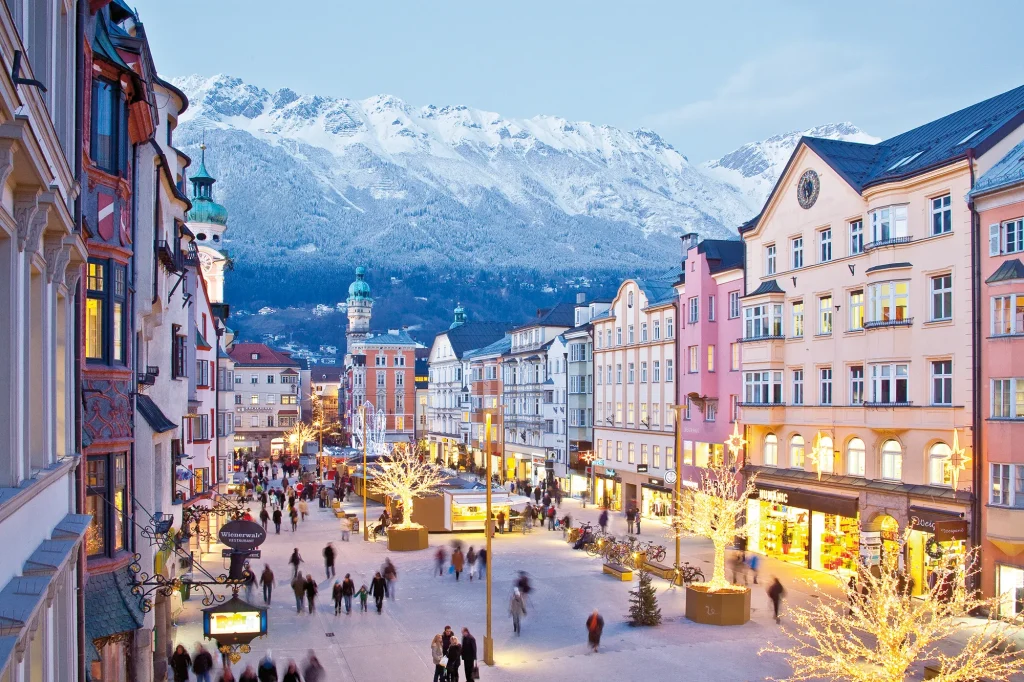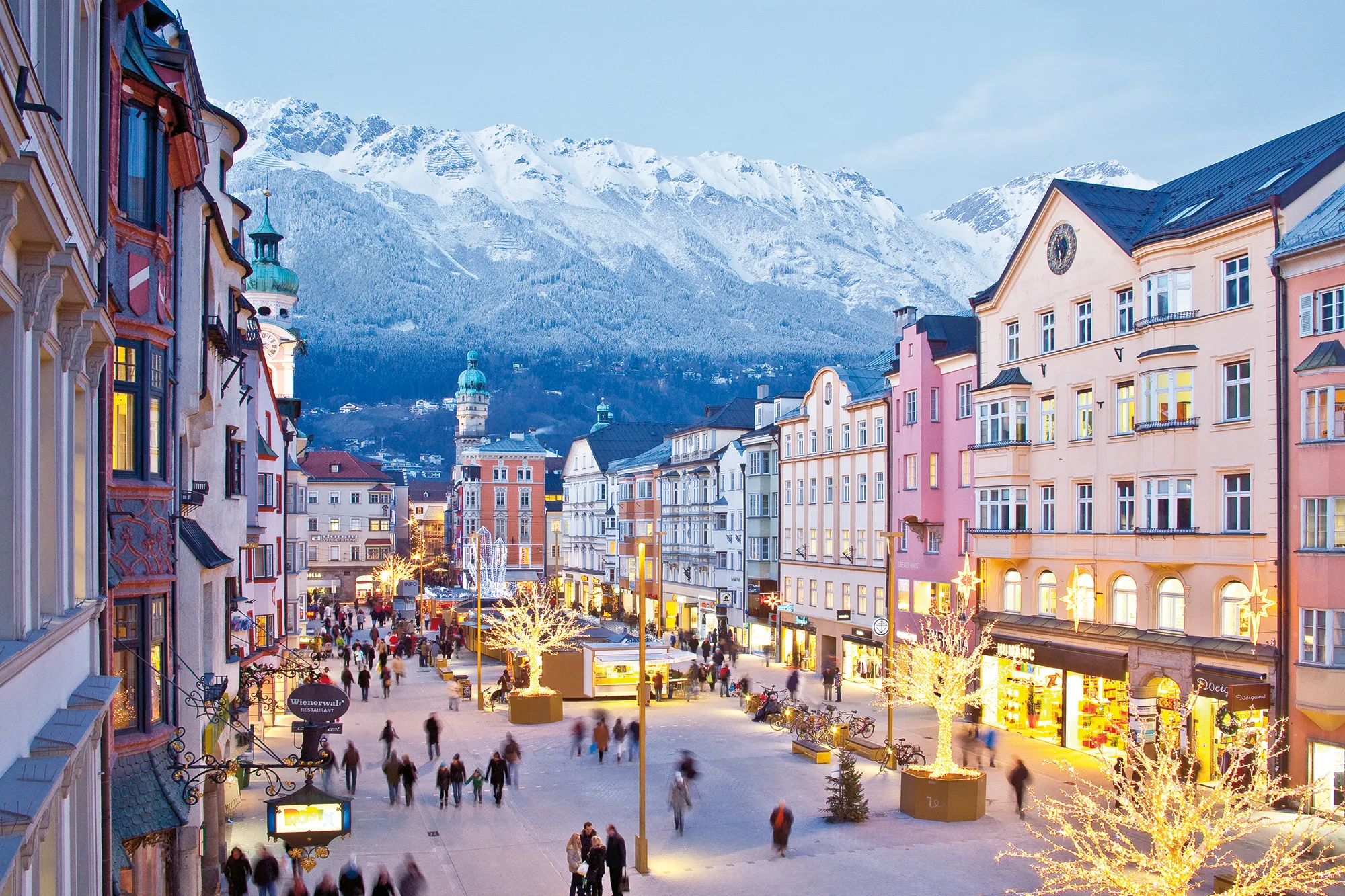Austria, known for its rich history, stunning natural beauty, and high quality of life, is a top destination not only for tourists but also for those seeking to live and work in Europe. The country offers a wealth of opportunities in terms of education, employment, and cultural experiences. For Turkish citizens, short-term visits for tourism require a Schengen visa, while long-term stays for work, education, or other reasons necessitate different types of residence permits. This guide delves into the various Austrian residence permit types, application processes, and benefits of acquiring them, providing you with everything you need to know for a successful application.
Overview of Austrian Residence Permit Types

If you are planning to stay in Austria for an extended period, you will need to understand the various types of residence permits available. These permits cater to different needs, depending on the purpose of your stay and your personal circumstances. Below is an in-depth exploration of the most common residence permit types in Austria:
1. Work-Based Residence Permit (“Red-White-Red Card”)
The Red-White-Red Card is a work permit designed for individuals who wish to work in Austria for longer than six months. This permit is specifically targeted at highly qualified professionals, skilled workers, and other labor categories deemed necessary by the Austrian economy.
- Eligibility Criteria: To qualify for a Red-White-Red Card, applicants must score at least 70 points based on criteria set by the Austrian government. These criteria include educational level, work experience, language skills, age, and expected salary.
- Application Requirements: The required documents include a valid passport (at least one year of validity), completed application form, biometric photograph, criminal record certificate, and proof of language skills (German or English proficiency).
- Key Benefits: With the Red-White-Red Card, holders can work legally in Austria for the company they applied for and may eventually apply for permanent residence.
Key Considerations for Application:
- Scoring System: Points are awarded for criteria such as educational level, professional experience, German or English language proficiency, and age.
- Required Documentation: Applicants need a valid passport, application form, biometric photo, proof of educational and professional qualifications, and a language certificate.
2. Study-Based Residence Permit
Austria is a popular destination for international students, offering excellent higher education opportunities. There are two types of study-based residence permits available: one for university students (“Studenten”) and another for researchers (“Forscher”).
- Eligibility Requirements: Applicants need a valid acceptance letter from an Austrian university or research institution, proof of financial resources, and evidence of health insurance.
- Advantages: Studying in Austria offers the opportunity to apply for a work permit after graduation, allowing international students to remain and work in the country.
- Required Documentation: Proof of acceptance from an Austrian educational institution, financial means to cover living expenses, health insurance, and language proficiency if applicable.
3. Family Reunification Residence Permit
If you have family members who are already residing in Austria, you may be eligible for a family reunification permit. This permit allows spouses, children, or dependent parents to live with family members who hold a valid residence permit.
- Requirements for Application: Applicants must provide proof of the family relationship, such as a marriage or birth certificate, proof of sufficient income to support the family, and evidence of accommodation that meets Austrian living standards.
- Application Timeline: It usually takes between three to six months for family reunification permits to be processed.
Application Tips for Success:
- Supporting Documents: Submit authenticated marriage or birth certificates, income statements, proof of housing, and language certificates if applicable.
- Processing Time: Applications typically take three to six months to process, so early preparation is crucial.
4. Settlement Permit
The settlement permit is intended for individuals who wish to reside in Austria for an extended period without the specific requirement of employment.
- Restrictions: Settlement permit holders do not necessarily have work rights but are eligible for various social benefits and can apply for a work permit after meeting certain criteria.
- Required Documents: A valid passport, proof of financial resources, biometric photos, and notarized documents are needed to apply.
- Quota Limitations: There is a fixed annual quota for settlement permits, and applications are accepted until the quota is reached each year.
Key Takeaways for Applicants:
- Quota-Based Availability: Applications are only accepted until the annual quota is met.
- Application Documents: Include notarized copies of passports, proof of financial means, and biometric photographs.
The Application Process for Austrian Residence Permits
Applying for an Austrian residence permit involves several steps, and the requirements differ from those of a typical Schengen visa. Here is a detailed breakdown of the process to help you prepare effectively:
- Appointment Scheduling: You need to make an appointment through the Austrian Consulate or Embassy in your country. It is crucial to select the correct appointment category; incorrect selections may result in rejection.
- Fees: The application fee for adults is approximately 120 Euros, with a processing fee of 20 Euros. For children under six, the application fee is 75 Euros.
- Document Submission: You must submit your application documents in person at the designated consulate or embassy.
Tips for a Smooth Application Process:
- Correct Appointment Type: Selecting the wrong appointment category may lead to application rejection, so ensure you choose the correct one.
- Fees: Applicants over six years of age must pay a 120 Euro fee, plus an additional data processing charge of 20 Euros.
Residence Permit by Property Purchase
Austria has stringent requirements for residence permits through property investment compared to many other countries. While some countries allow residence permits for property buyers, Austria emphasizes investments that create economic value or employment.
- Citizenship by Investment (CBI) Requirements: Unlike other countries, purchasing real estate alone does not qualify you for residency in Austria. Instead, CBI programs focus on contributions that directly benefit the Austrian economy.
- Elite Investor Route: Austria also has a unique approach called the “Elite Investor Route,” where those with notable achievements or significant economic contributions can apply for residency.
Understanding Residency by Investment:
- Economic Impact: Real estate investments do not count towards residency; the investment must create jobs or contribute to the economy.
- Requirements: Investment applicants should focus on economic contributions, such as job creation or capital injections.
Required Documents for Successful Applications
Providing complete and correct documentation is essential for a successful residence permit application. The following is a list of documents you will need to prepare:
- Valid Passport: It must be valid for at least one year from the date of application.
- Application Form: Filled out accurately with all required details.
- Biometric Photo: A recent color photo measuring 3.5 x 4.5 cm.
- Criminal Record Certificate: A certificate with a QR code translated into German.
- Language Certificate: Applicants need at least A1-level German proficiency, demonstrated with an official certificate.
- Proof of Financial Stability: You must prove that you have sufficient financial resources to support yourself during your stay.
- Travel Insurance: Must cover at least 30,000 Euros and be valid throughout the Schengen area.
Documentation Checklist for a Complete Application:
- Accurate Information: Any discrepancies can lead to application rejection.
- Language Translation: All documents should be officially translated into German and notarized.
Tips for a Successful Residence Permit Application
- Document Completeness: Ensure that all documents are notarized, translated, and current. Missing or incomplete documents may result in delays or rejections.
- Professional Support: If your situation is complex, consider seeking assistance from a migration specialist to maximize your chances of success.
- Pre-Appointment Preparation: Make sure all required documents are ready well in advance of your appointment.
Conclusion and Next Steps
Living in Austria offers a high quality of life, access to excellent healthcare, educational opportunities, and a rich cultural environment. However, obtaining a residence permit requires understanding the rules, gathering the necessary documentation, and navigating the application process effectively. The more prepared you are, the better your chances of a smooth, successful application.
If you are considering a long-term stay in Austria, thoroughly assess which residence permit is best suited for your situation and begin preparing your application well in advance. Consider consulting with a migration expert to streamline the process and avoid common pitfalls. Austria’s numerous opportunities and quality of life make the effort well worth it.
Further Reading: If you found this guide helpful, you might be interested in learning more about the Austrian job market, educational opportunities, or even lifestyle tips for new residents. Explore related articles to expand your knowledge and prepare for your new journey.

